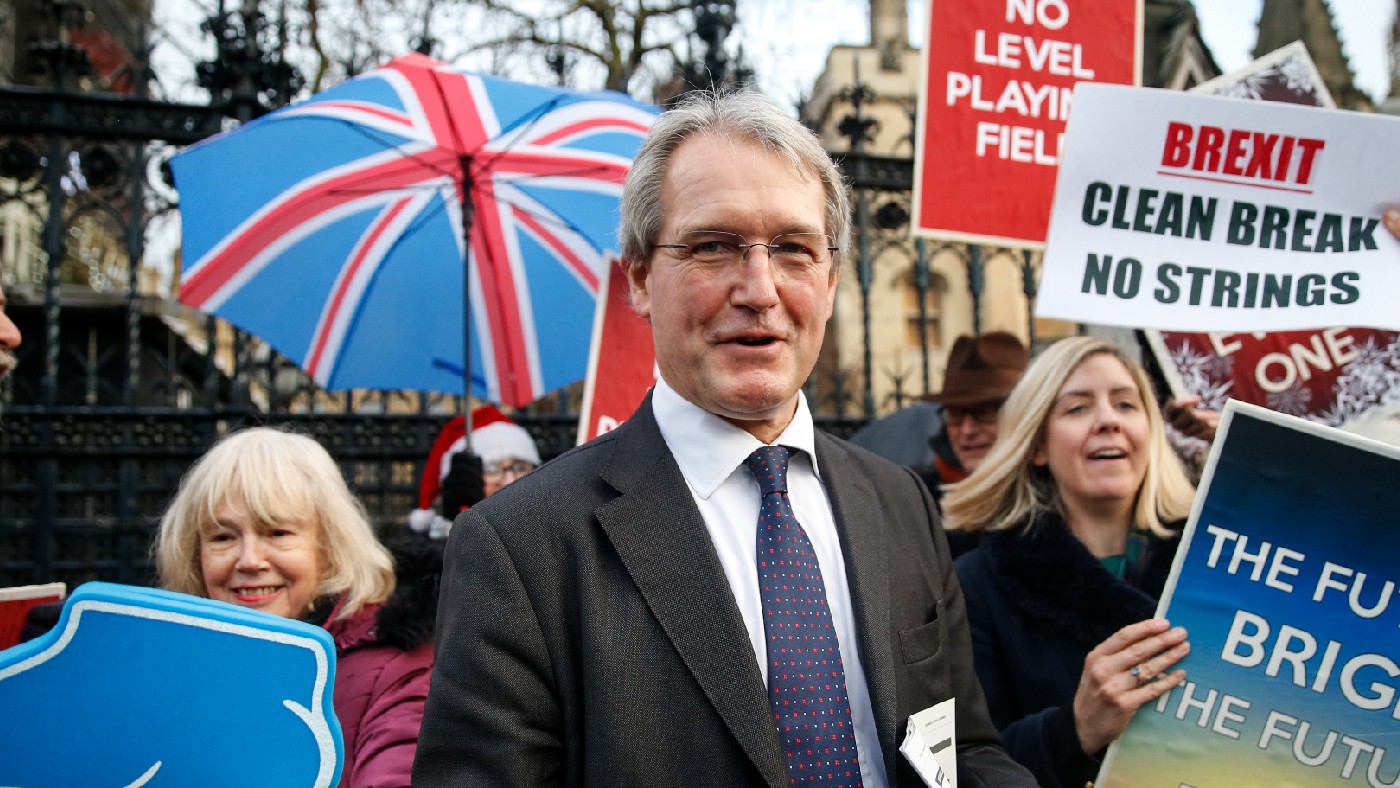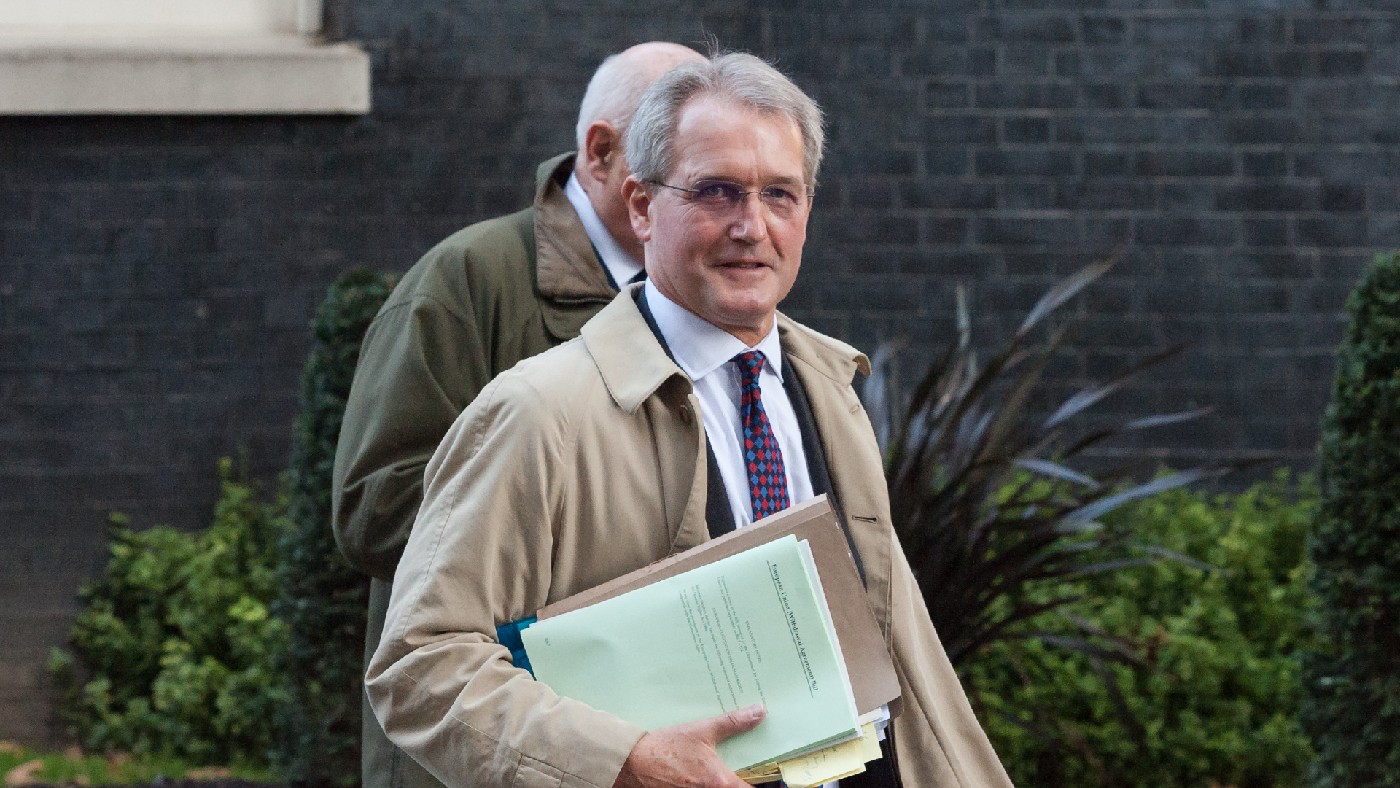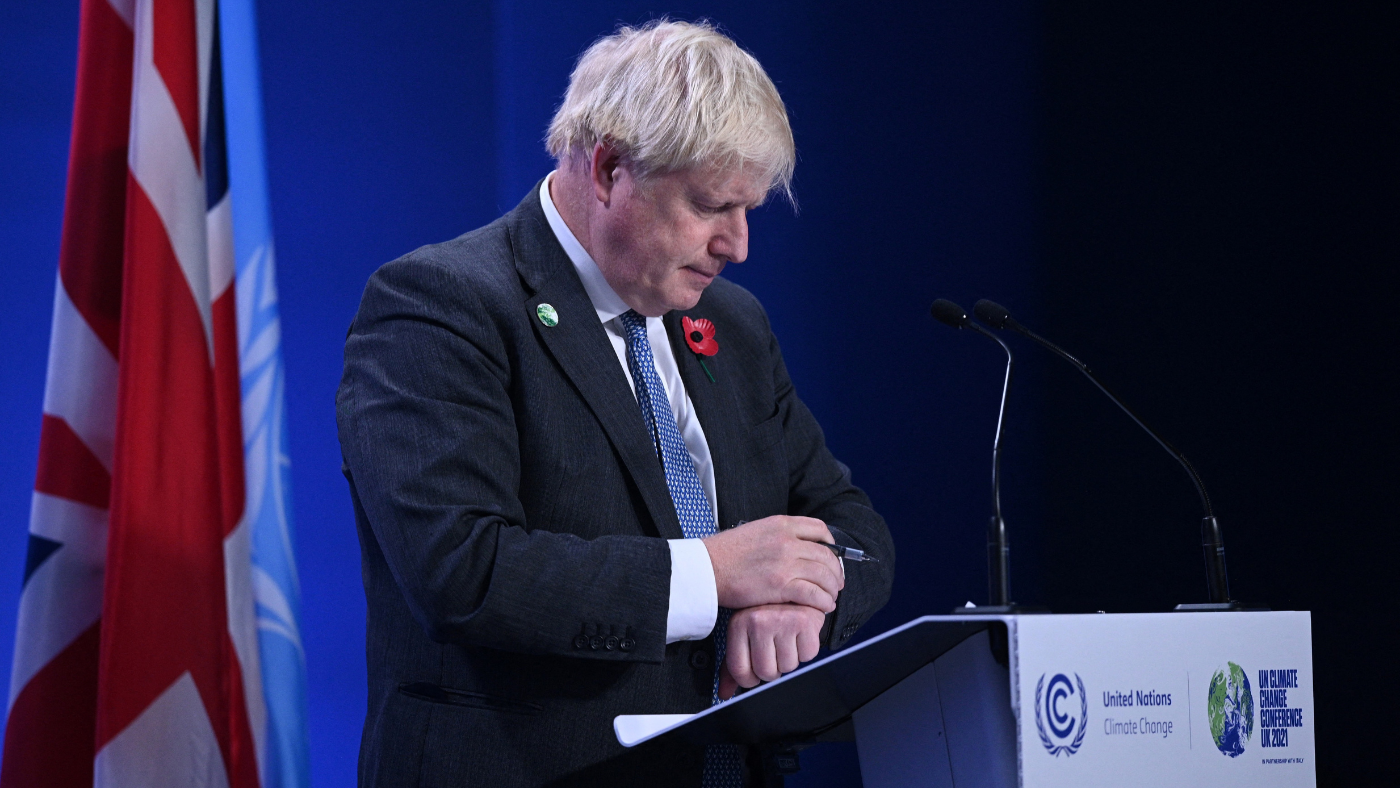Owen Paterson: how the PM’s U-turn sparked fury within the Conservative Party
Tory MPs angry with Johnson for ‘marching them up the hill only to march them down again’

A free daily email with the biggest news stories of the day – and the best features from TheWeek.com
You are now subscribed
Your newsletter sign-up was successful
“It is hard to imagine a more shambolic end to a more tawdry affair,” said Tom Peck in The Independent. First, a group of Owen Paterson’s Tory colleagues “tore up the rule book to try and save him”. Then, when that caused uproar, they decided “to stick the rule book back together”, and cut him loose.
Faced with being suspended again, his career in tatters, the MP resigned, bidding farewell to the “cruel world of politics”, as if he were the victim of a monstrous injustice, and not a man who had been found guilty of serious breaches of the lobbying rules. He left politics last week unrepentant: he had, he said, done nothing wrong.
The road to Paterson’s resignation began in 2019, said Felicity Lawrence in The Guardian, when this newspaper discovered he’d repeatedly sought access to ministers and regulators on behalf of two companies – the clinical diagnostics firm Randox, and Lynn’s Country Foods – without always declaring that between them, they were paying him over £100,000 a year (far more than his MPs’ salary).
The Week
Escape your echo chamber. Get the facts behind the news, plus analysis from multiple perspectives.

Sign up for The Week's Free Newsletters
From our morning news briefing to a weekly Good News Newsletter, get the best of The Week delivered directly to your inbox.
From our morning news briefing to a weekly Good News Newsletter, get the best of The Week delivered directly to your inbox.
Paterson insisted he’d not breached rules against paid advocacy, because he had been raising issues of public safety. But following a two-year investigation, the Parliamentary Commissioner for Standards, Kathryn Stone, found against him.
He may have used his initial approaches to raise “serious wrongs”, she said, but he’d used the follow-up ones to promote a Randox product (a system for testing for antibody residues in milk), and make the case for regulatory reforms that would have disadvantaged one of Lynn’s commercial rivals. These amounted to “egregious” breaches, whether witting or not.
The matter was then passed to the MPs on the cross-party Standards Committee, who recommended that Paterson be suspended from Parliament for 30 days, a move that might have triggered a by-election.

Conclusive case
A free daily email with the biggest news stories of the day – and the best features from TheWeek.com
The case against Paterson was pretty conclusive, said Stephen Bush in the New Statesman. He complained that 17 of his witnesses had not been interviewed, but their written testimony had been considered, and there was no suggestion that they had evidence to alter the facts as established.
But when his suspension was put to the Commons last Wednesday, a group of Tories moved to block it, said The Times: they tabled an amendment to abolish the Standards Committee, and replace it with a new Tory-led panel that would re-examine Paterson’s case. Many Tory MPs were aghast; yet the PM decided to give the vote a three-line whip, one that was rigorously enforced.
This was a miscalculation, said Katy Balls in The Spectator. Many Tories sincerely believe that the standards procedure is flawed, and that it needs an appeal process. But since several of the MPs backing the amendment had themselves been censured by it, the optics were decidedly suboptimal. Rolling Paterson’s case into the procedural reform compounded the problem, creating the distinct sense that the Tories were rewriting the rules to save one of their own.
The fact that 13 Tories defied the whip, and 38 abstained, points to a “deep discomfort” in the parliamentary party. The amendment squeaked through, but victory proved pyrrhic, said Sean O’Grady in The Independent. The vote caused uproar across the spectrum: the Daily Mail used the dread word “sleaze” in a front-page headline; the opposition vowed to boycott a new committee.
And 20 hours later, the Government performed a volte face. A PPS who had been sacked for defying the whip was quietly reinstated; but the Tory MPs who’d obeyed it, some of whom had received a torrent of angry emails as a result, were furious with the PM for “marching them up the hill, only to march them down again”.
By-election now a certainty
Business Secretary Kwasi Kwarteng, who’d toured the studios defending the amendment, must have been smarting too, said The i Paper. The departure of Paterson means the by-election that was only a possibility is now a certainty. And the opposition has been able to revive uncomfortable arguments about the number of Tory MPs who hold lucrative second jobs.
So what was it all for? It has been suggested that Boris Johnson resolved to save Paterson at a Garrick Club dinner last week, which he’d flown back from Cop26 in a private jet to attend. His host was Charles Moore, the ex-Telegraph editor, who has been a vocal supporter of Paterson.

Quite possibly Johnson was motivated by loyalty to a fellow Brexiteer who’d faced a personal tragedy, said Stephen Glover in the Daily Mail: Paterson’s wife Rose died by suicide last year. The PM can be kind, and it wouldn’t be the first time he has bent the rules for an ally – but it is likely that he also had a “bone or two of his own” to pick with Stone, given that she has frequently scrutinised his behaviour.
Either way, it was very short-sighted: more people will now be convinced he is a man who “does not know right from wrong”, presiding over an “overmighty Government” that twists “the rules to suit its own interests”.
-
 Political cartoons for February 21
Political cartoons for February 21Cartoons Saturday’s political cartoons include consequences, secrets, and more
-
 Crisis in Cuba: a ‘golden opportunity’ for Washington?
Crisis in Cuba: a ‘golden opportunity’ for Washington?Talking Point The Trump administration is applying the pressure, and with Latin America swinging to the right, Havana is becoming more ‘politically isolated’
-
 5 thoroughly redacted cartoons about Pam Bondi protecting predators
5 thoroughly redacted cartoons about Pam Bondi protecting predatorsCartoons Artists take on the real victim, types of protection, and more
-
 Crisis in Cuba: a ‘golden opportunity’ for Washington?
Crisis in Cuba: a ‘golden opportunity’ for Washington?Talking Point The Trump administration is applying the pressure, and with Latin America swinging to the right, Havana is becoming more ‘politically isolated’
-
 How corrupt is the UK?
How corrupt is the UK?The Explainer Decline in standards ‘risks becoming a defining feature of our political culture’ as Britain falls to lowest ever score on global index
-
 Democrats push for ICE accountability
Democrats push for ICE accountabilityFeature U.S. citizens shot and violently detained by immigration agents testify at Capitol Hill hearing
-
 Fulton County: A dress rehearsal for election theft?
Fulton County: A dress rehearsal for election theft?Feature Director of National Intelligence Tulsi Gabbard is Trump's de facto ‘voter fraud’ czar
-
 ‘Melania’: A film about nothing
‘Melania’: A film about nothingFeature Not telling all
-
 Greenland: The lasting damage of Trump’s tantrum
Greenland: The lasting damage of Trump’s tantrumFeature His desire for Greenland has seemingly faded away
-
 Minneapolis: The power of a boy’s photo
Minneapolis: The power of a boy’s photoFeature An image of Liam Conejo Ramos being detained lit up social media
-
 The price of forgiveness
The price of forgivenessFeature Trump’s unprecedented use of pardons has turned clemency into a big business.